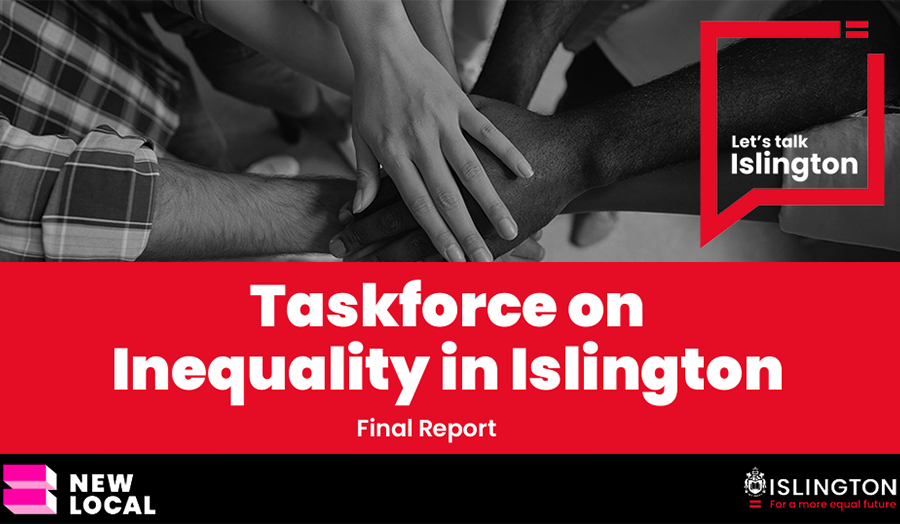Course Leader Torange Khonsari has helped the Islington Inequality Taskforce to launch the Inequality in Islington Final Report.
Date: 11 May 2023
London Met researcher and course leader Torange Khonsari, also member of the Islington Inequality Taskforce, has helped to launch the "Taskforce on Inequality in Islington Final Report" with her expertise. This report shed findings on the circle of inequality in which daily pressure from deprivation damages well-being, leading to low self-confidence, physical and mental ill-heath, a loss of agency and of influence. These factors exacerbate deprivation as individuals face higher barriers to securing decent work, consideration from those in positions of power, and control over their future. The report included what practical steps the council can take to tackle these challenges and make lasting changes in the borough.
Islington is London's sixth most impoverished borough, with affluent neighbourhoods adjacent to deprived ones. Residents in the most deprived neighbourhoods may expect to live nearly ten years less than those in the least deprived areas, which is significantly higher than the London average. Additionally, 28% of children under the age of 16 live in low-income households, which is the highest proportion in London.
The Inequality Taskforce was established to develop recommendations for how Islington Council can go about addressing inequality, poverty and deprivation. They’re comprised of civic, academic, and business leaders with local and national knowledge across health, poverty reduction, and education. It is a key part of the Let’s Talk Islington engagement exercise with the borough’s residents to discover their hopes and aspirations for Islington. A tiered approach was designed with the standard mass engagement survey and community workshops for residents to share stories and what’s important to them on their own terms.
“We talked about that power relationship. Service giving is not that empowering, because it creates a dependency culture in a setting where there simply isn’t enough resources. The council’s role needs to shift instead towards collaboration and facilitation,” said Torange. “All these systems need mapping to see what we have to change to comply with a more empowering, agency-giving approach. Because if you’re in a system where you have agency, where you feel valued, that’s where you start to actually address a lot of the inequalities that we’ve been talking about.”
Now that the report has been released, the Islington Inequality Taskforce is developing a 2030 plan that will incorporate all of the learnings to date and provide a clear roadmap to achieving a more equitable Islington. It will focus on the objective of enhancing people's control over decisions that impact them. Moreover, it will encompass the pledge to increase community influence in Islington and continue innovation in this area.
The Taskforce on Inequality in Islington Final Report can be found published online.

